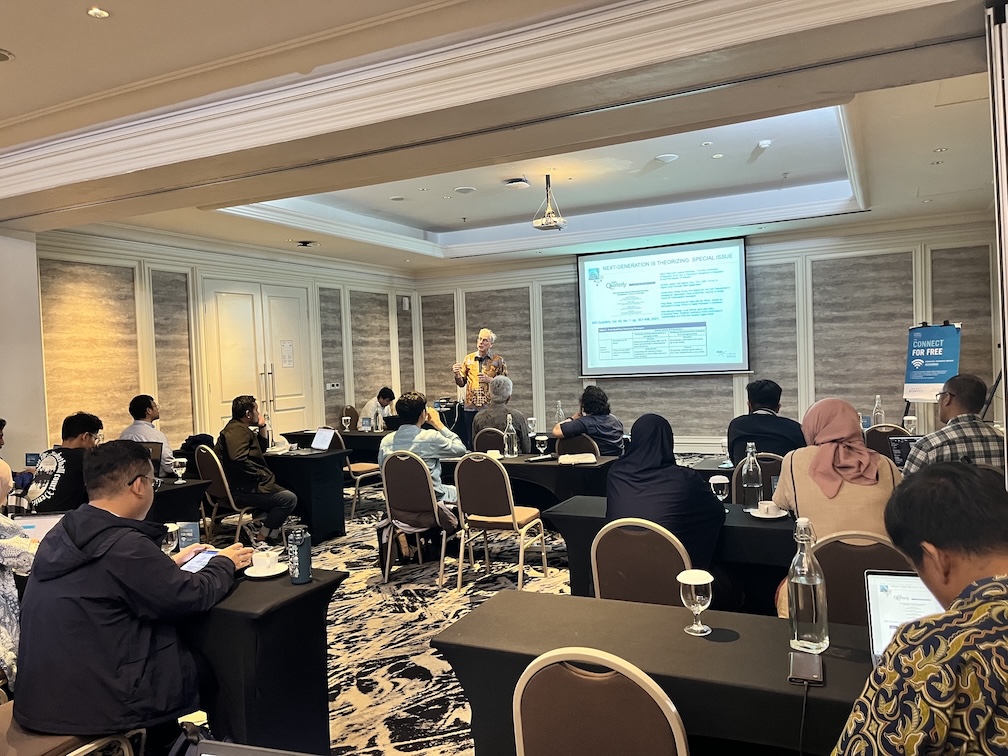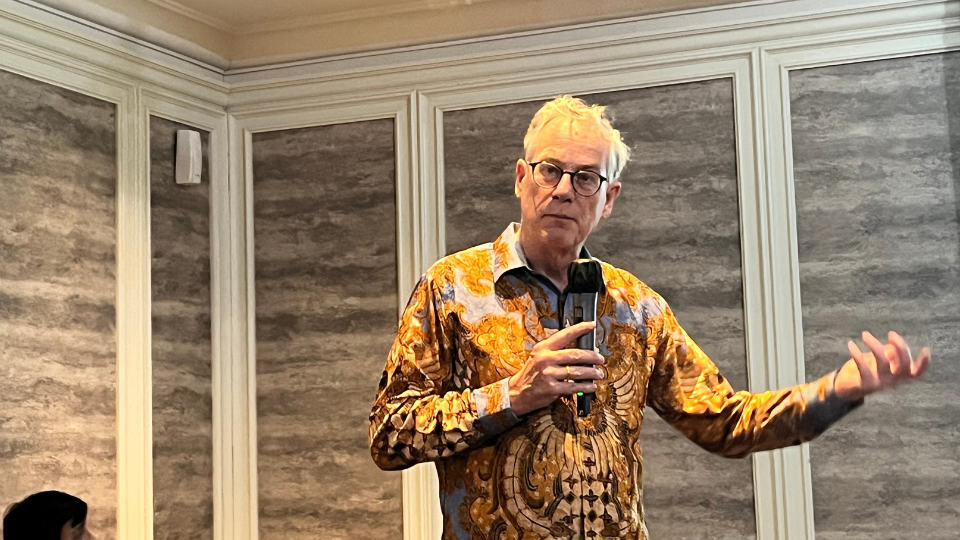How should complex systems research be positioned within the field of information systems? Prof. Dr. Ir. Eric van Heck, an expert in information systems from the Rotterdam School of Management (RSM), Erasmus University, explored this topic during the DMSN Talk seminar entitled “How to Position Your Complex Systems Research in the Field of Information Systems? The Case of Energy Systems and Information Systems” on Friday (28/2).
DMSN Talk is a regular discussion series organized by the Decision Making and Strategic Negotiation (DMSN) Expertise Group at the School of Business and Management, Bandung Institute of Technology (SBM ITB). Eric began the seminar by distinguishing between the fields of Information Systems (IS) and Energy Systems (ES). He explained that IS is rooted in computer science, organizational science, and management science, whereas ES is grounded in computer science, electrical engineering, and environmental engineering.
While IS focuses on validating the design and implementation of socio-technical systems, ES primarily deals with designing and implementing complex energy systems. Despite their differences, the two fields are closely related.
IS plays a crucial role in advancing renewable energy systems such as solar and wind power, while energy systems, in turn, rely on information systems to function efficiently. For instance, there has been a shift from “energy informatics” to “Green IS” and “Smart Markets.”
Eric highlighted several key theories in information systems research, including the DeLone and McLean Information Systems Success Model, the Technology Adoption Model (TAM), and Platform Ecosystem Theory. He emphasized the significance of theoretical contributions in the field.
To illustrate how energy systems research can be positioned within IS, Eric presented an example: research on the impact of online fixed-price channels on auction prices in sequential multi-channel auction systems.
He also addressed the challenges young researchers face in contributing to theoretical development. Many students, he noted, approach him with the desire to replace existing theories.
“Many students come to me and say, ‘I want to replace this theory,'” Eric said. “Of course, it is possible, but replacing a theory requires a long time, significant effort, and strong supporting evidence.”
He advised that attempting to replace a theory is not recommended for master thesis but may be feasible at the doctoral level, where research periods are longer.
“Even then, it remains extremely challenging,” he added.
Instead of focusing on replacing established theories, Eric encouraged young researchers to develop original contributions.
“The next generation should focus on theorizing, not just replacing theories,” he said. “Make unique and significant contributions.”
He underscored the importance of conducting research with passion and enthusiasm.
“Research something you genuinely enjoy,” he advised. “That way, you will stay motivated, and your supervisor will appreciate your work.”
He also reminded that every researcher has their own research path. Don’t be fixated on other people’s research. Everyone has their own research path. For this reason, Eric encouraged researchers to seek competitive advantages.
“Do something difficult for others but you can excel at. If you can access proprietary data, that is your competitive edge—use it to your advantage!”





